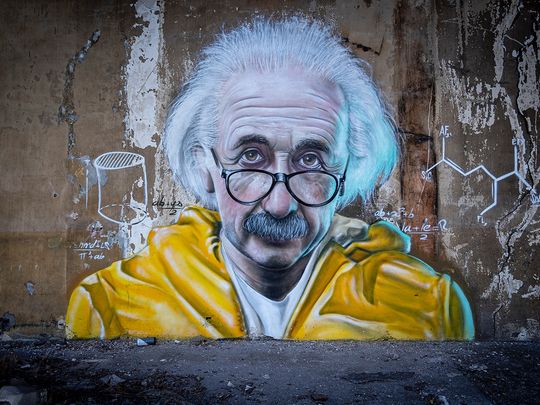
When you think of geniuses like German-born scientist Albert Einstein or English mathematician Alan Turing, it’s hard to imagine them doing anything other than the brilliant things they’re known for. But the fact is, they spent their spare time enjoying vibrant hobbies – and they were very good at them.
Click start to play today’s Spell It, where we learn that great minds who 'attain' fame can have some truly surprising hobbies.
Here’s how a few of history’s greatest minds spent their free time:
1. Einstein and his violin
Famous for his theory of relativity and contributions to quantum mechanics, Einstein has published at least four extraordinary papers with mind-boggling theories for his time, ranging from Brownian motion to the photoelectric effect to special relativity. Less known, however, is the fact that this genius also practiced the violin from a young age. His mother was a talented pianist, and introduced him to the violin at age five, to encourage him to connect with his German culture. While Einstein initially didn’t enjoy playing (he was largely self-taught), he learned to love the instrument at age 13, when he was introduced to Austrian composer Wolfgang Amadeus Mozart’s work. Years later, Einstein mused that he would have tried to become a professional musician if he never went into science.
2. Isaac Newton and his alchemical adventures
The English physicist is world-renowned for formulating the laws of motion and the law of gravity, along with inventing the reflecting telescope, calculus and other incredible milestones in science. But according to a December 2022 report in US-based multimedia website Big Think, of the 10 million words Newton produced, 1 million concern alchemy. Although this work was unpublished, it was substantial – the legend goes that his dog Diamond started a small lab fire that may have burned an additional 20 years of alchemy papers by Newton. Some historians say his writings suggest he was looking for the famous Philosopher’s Stone, which was thought to turn base metals into gold, and the Elixir of Life.
3. Alan Turing and his marathon goals
English mathematician Alan Turing is known for his work in cracking the Nazi Enigma Code during the Second World War, and for his Turing Test, which relates to artificial intelligence. When he wasn’t working with computers or laying down the foundation for the reaction-diffusion theory of morphogenesis in biology, Turing was running. He discovered the sport late, in his 30s, but became fully dedicated to it, often running the 64km between Bletchley Park and London for meetings. Apparently, it was a form of stress relief for Turing, who was once reported to have told his friends: “I have such a stressful job that the only way I can get it out of my mind is by running hard; it’s the only way I can get some release.”
What do you think of these hobbies of well-known geniuses? Play today’s Spell It and tell us at games@gulfnews.com.




